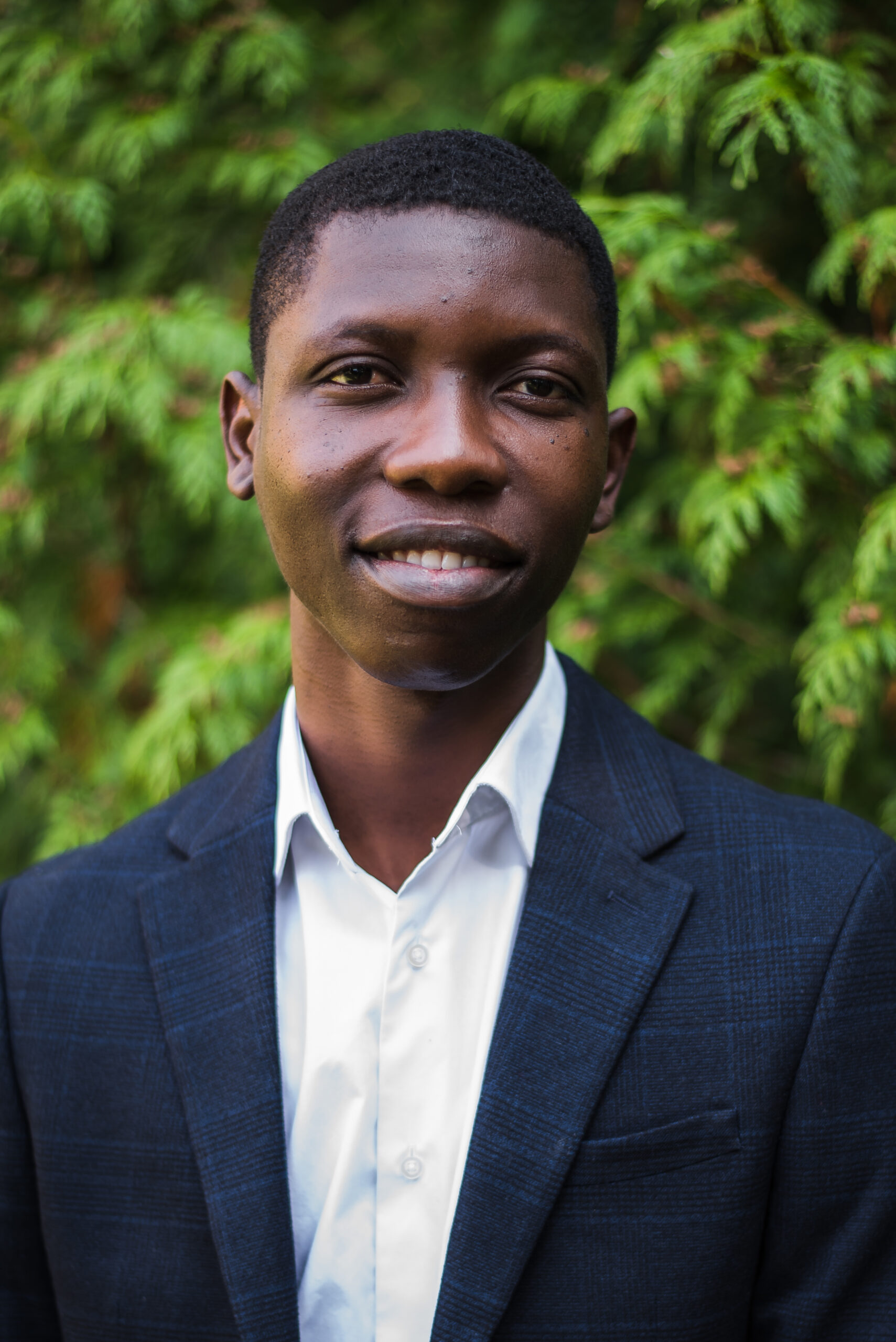Originally from Southern Nigeria, alumnus Godspower Major was a Mastercard Scholar who recently graduated with an MPhil in Biological Sciences (Zoology). Now a doctoral researcher and Gates Scholar, Godspower’s research will focus on developing eco-friendly strategies to help improve biodiversity conservation and ecosystem services within agroecosystems in tropical regions with a focus on oil palm plantations.
Your journey to Cambridge
Can you tell us about your personal journey to Cambridge and what life for you looked like before you joined the University?
Before coming to Cambridge, I was working for a small environmental firm advising organisations, including the Nigerian government on how to set up eco-friendly projects that minimise environmental disruption.
Prior to this, I completed an undergraduate degree in Animal and Environmental Biology. I originally wanted to study Medical Sciences but fortunately changed my mind. Our environment has a huge direct impact upon global health inequalities. Many young Nigerians are uninterested in studying the environment, opting to study Law or Engineering. I realised I could make a significant contribution to improving people’s lives by focusing my academic studies on sustainable agriculture. I was really intrigued by the ‘unpopular’ path, you could say and saw it as an opportunity.
Why Cambridge?
Growing up in Nigeria, we knew there were two very prestigious universities in the world – Cambridge and Oxford. I always wondered what life was like there. I knew there was a lot of people who had made important discoveries at Cambridge, and it seemed like a natural next step to undertake my postgraduate study in the UK.
Life at Eddies
What motivated you to choose your field of study?
Growing up in Southern Nigeria, I became fascinated with the tropical landscape and its biodiversity-rich ecosystems, this motivated me to build a career in environmental and agricultural sustainability. One of the unique challenges we face is finding the best approach to co-exist with the natural world. In a world already battling with climate change, how do we bridge the gap between biodiversity conservation and food security? As the world’s population grows, the demand for food and non-food products is ever-increasing, and as far back as human history can record man has always sought ways to manipulate the environment to derive a higher standard of living, resulting in agricultural intensification and land use changes across the globe. Food security depends on the valuable ecosystem services provided by the vast interplay of the earth’s fauna and flora.
I graduated with an MPhil in Biological Sciences (Zoology) this year. My PhD will focus on developing eco-friendly strategies to help improve biodiversity conservation and ecosystem services within agroecosystems in tropical regions with a focus on oil palm plantations. I hope to positively shape the future of sustainable agriculture in West Africa.
Can you share a memorable experience from your time at St Edmund’s College so far that has had a significant impact on you?
I was privileged to attend the Norfolk Feast, the College’s most significant annual event which celebrates the College’s founding by the Fifteenth Due of Norfolk in 1896. I met a wealth of talented and inspiring individuals who, like me, are committed to improving the future of societies around the world.
Are there any professors, mentors, or classmates who particularly inspire or influence you? If so, how are they impacting your personal or professional development?
My supervisor, Professor Edgar Turler was an incredible help to me. In the beginning, when I reached out to him in Nigeria, he was very encouraging, and he wanted it to work, and he gave me tips on ways to write my proposal. He was also helpful in guiding me through Cambridge life.
How has attending St Edmund’s College enabled you to thrive? Can you share a project, research endeavour, or extracurricular activity you are involved in that you find especially rewarding or impactful?
The College has provided much support. The Tutorial Office supported my field trip to Indonesia by providing access to a research travel grant.
I also help incoming African students wishing to apply to Cambridge, by offering advice and help to settle in once here.
Shaping the future
What values are you learning at St Edmund’s College and how do you think your experiences at Cambridge are shaping you as a person?
The most striking thing I have learned? Have faith in yourself. Even when you think you can’t do it, you can. My research experience at Cambridge has boosted my confidence. Having to learn different skills and improve on existing ones, such as public speaking, giving talks with confidence.
What are your plans beyond graduation and how do you see them contributing to a better future for individuals, societies and the world globally?
I started my PhD in October 2024, which will further develop my research. I shall be collaborating with multiple small holders (small farmers) in Malaysia (Uni and NGOs).
My ultimate goal after my PhD is to have my own farm with a teaching and training facility, offering expert advice to both farmers and government bodies, and embedding sustainable farming practices into local palm oil plantations in Nigeria.
What advice would you give prospective students thinking of choosing St Edmund’s College?
The college you choose is very important. I would encourage future students to take the time to research the different Colleges. What environment does it offer? What are its community values? St Edmund’s is a small and highly international college, where you really get to know the people who work and live here. From the catering staff to the porters, everyone is so friendly.





